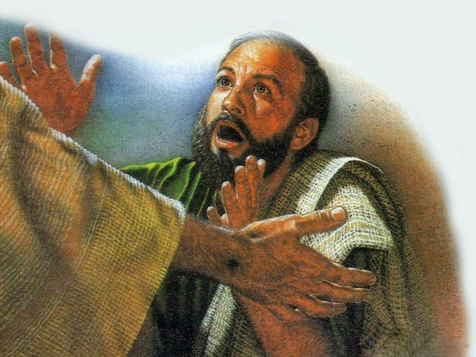|
Well, we’ve finally come to the end of the gospel of John. After fourteen months and thirty-two posts, this John 7-21 Study is just about completed. However, before we leave, we should touch on one final, important topic—the purpose of this book. Unlike other New Testament writers, the Apostle John gives us the purpose of his writing at the end of the book rather than the beginning. So at the end of John 20, we read:
Comments
Have you ever played Apples to Apples? For those of you who haven’t been so privileged, it is a game in which each player has five red cards with nouns written on them. On each turn, one player is the “judge” and draws a green card, which contains a single adjective, and reads it out loud. Then all the other players must choose which of their five cards best meets the adjective read and place it in the pile. Once all players have made their decisions, the “judge” mixes all the submissions up, reads them out loud, and decides which of the red cards submitted matches the green adjective card best. Whoever played the red card that the “judge” decides is the best match wins the green card, and the point of the game is to get five green cards. While this game may sound boring to one who’s never played before, the humor of it is that often times the red noun cards submitted do not match in any stretch of the imagination the green adjective card; thus the game produces lots of laughter.
Now the point of this tedious explanation of the game Apples to Apples is not only to inform you on how the game is played, but also to point out an important life lesson we can glean from it. What happens to the red cards? Well each player is given five of them, those five are then compared against each other and the “best” one is submitted to the next level, where it is again pitted against other red cards for the ultimate prize—to be chosen by the “judge” and thus win a green card. So what does this game entirely consist of? Is it luck? Skill? You got it…though it is the title of the post! Comparison is what Apples to Apples is completely based upon. Each card and each player is pitted against one another and must seek the favor of the “judge”. And while Apples to Apples is not a bad and evil game, it does normalize a dangerous mindset—comparison. Doubting Who?11/10/2016 As we go through John’s account of events after the resurrection, one of the characters that stands out is the disciple Thomas. Remember…he’s the one who refused to believe the resurrection unless he was able to put his hands in Jesus’ nail holes and side. Because of this, Thomas has been dubbed “Doubting Thomas” and given a negative connotation. However, was Thomas’ lack of faith really unjustified? Does he really deserve the bad rap he’s been given?
"I've Just Seen Jesus!"11/3/2016 Their beloved Teacher was dead, and the hope of a restored Israel along with Him. His body was quickly placed in a tomb without proper ceremony and preparation. The government officials may or may not be after those that remained. And one of their number had already denied their Lord for fear of persecution. This was the position of the disciples on the morning of Resurrection Sunday. Things were looking rather bleak and hopeless with no light on the horizon. In such circumstances, it would have been easy to sulk, succumb to depression, and desert, and some of the disciples may have felt like it. However, the first verse of John 20 shows us that at least one woman was not ready to give up yet.
|



